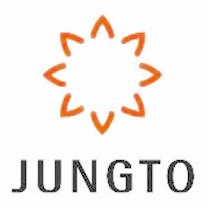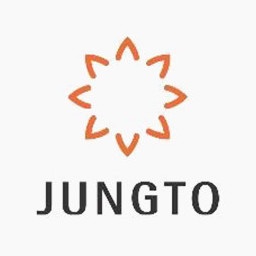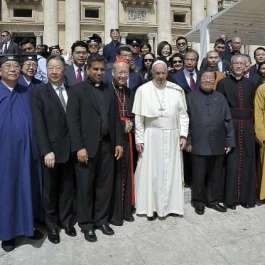
The Korean Seon (Zen) master Venerable Pomnyun Sunim (법륜스님) wears many hats: Buddhist monk, teacher, author, environmentalist, social activist, and podcaster to name a few. As a widely respected Dharma teacher and a tireless socially engaged activist in his native South Korea, Ven. Pomnyun Sunim has founded numerous Dharma-based organizations, initiatives, and projects that are active across the world. Among them, Jungto Society, a volunteer-based community founded on the Buddhist teachings and expressing equality, simple living, and sustainability, is dedicated to addressing modern social issues that lead to suffering, including environmental degradation, poverty, and conflict.
The following article is part of a new series of essays shared by Jungto Society of notable highlights from Ven. Pomnyun Sunim’s teachings and regular live-streamed Dharma Q+A sessions, which are accessible across the globe.

Surprisingly, we are often hurt by a family member or someone close to us. In most cases, however, we suffer because we remember something as hurtful when it actually wasn’t. And even if it was a hurtful thing, it happened a long time ago, but we suffer because we can’t let it go.
For example, people who say that their parents hurt them take all the good things that their parents did for them for granted and resent their parents based on memories of the past. They say: “My parents sent my brother to college but not me,” or, “My parents scolded only me when I fought with my siblings.” When I listen to them, it seems to me that there aren’t many people who hurt others but there are many who were hurt.
I spoke with one woman who was deeply hurt because her mother left home and abandoned her. She cried while she told me that she met her mother a few decades later, but she still couldn’t forgive her aged mother:
Q: “My mother is already over 70, but I still can’t forgive her. Sometimes I feel so tormented that I wonder if I should make peace with my mother, but I don’t know how.”
Ven. Pomnyun Sunim: You are crying not because you were abandoned by your mother but because you are clinging to the hurt you felt when you were abandoned in the past. Your memory of being abandoned is making you sad.
Most of our suffering is caused by our memories of the past. We dwell in our misery by conjuring up memories of a time when we were disappointed in, or bullied by, others. We ourselves expand and reproduce the pain by preserving clear mental images of things that happened in the past and clinging to them. It is like locking ourselves in a dark cave.
Harboring bad memories of the past deep inside our minds and constantly brooding over them is very much like watching a movie. But when we remember a past event, our brain mistakes it for an actual event happening right now in front of our eyes. So when we recall something good, we smile involuntarily, and when we recall something painful and sad, we cry or feel as though we are suffocating.
Since our emotions arise unconsciously, if we harbor the emotional pain we experienced from past events, our current lives are likely to become miserable. The memories only exist in our minds, so they don’t actually exist in this moment. When we habitually recall the past, it is like we are repeatedly watching recorded videotapes. For example, there are some people who only talk about the old days. One characteristic of these people is that they talk about things that happened to them when they were children, even when they are over 50. It’s as if they are still living in the past.
In the end, all our emotional wounds exist only in our minds, which are holding onto the memories. We suffer not because someone hurt us but because we feel hurt by things that are not necessarily hurtful, we harbor the hurt in our minds, and we occasionally dwell on our hurt feelings.
Do not carry the past on your shoulders like a heavy burden. If you clearly understand that your present sadness originates from your memories of the past, healing your emotional wound becomes much simpler. You can choose to break away from the past. Instead of dwelling on your sadness by continually replaying the memories in your head, you can redirect your attention to the here and now.
It’s true that your mother abandoned you, but she might have been in a situation that forced her to do so, although you were not aware of it. When you were little, you could be easily hurt, so you might have resented your mother. But now that you’ve grown up enough to become a mother yourself, you should try to understand that your mother who had no choice but to abandon her own child. Then, you might feel differently:
“Mom, thank you for giving birth to me.”
“I am in this world thanks to you.”
If you stop resenting your mother and start thanking her, you may gradually stop feeling gloomy and begin to brighten up. Then, you may be able to stop feeling like a victim who was abandoned and unloved.
There is no one in the world other than yourself who torments, hurts, or makes you feel anxious. You suffer because you harbor bad memories of the past deep inside you. Healing starts from realizing this.
Everyone in this world can be happy. No matter how awful the experiences you had as a child, it is all in the past. If you stop replaying the video of the past in your head, you can be happy at any moment. This moment that you are alive, breathing in and out, is the present. If you concentrate on the present, you will become free from suffering.
If you can concentrate on the present, all the things you experienced in the past become valuable assets. Whether you failed in your business, broke up with your girlfriend, or were hurt by someone, if you take all those things as precious experiences that help you to understand your life, they will enable you to deal wisely with whatever comes your way in the future.
See more
Pomnyun
Jungto Society
JTS Korea
JTS America
International Network of Engaged Buddhists
Related videos from BDG
Dharma Q+A with Ven. Pomnyun Sunim
Wisdom Notes from Ven. Pomnyun Sunim
Related features from BDG
Dharma Q+A with Ven. Pomnyun Sunim: Facing the Challenges of COVID-19 Lockdown
The Hungry Should Eat: JTS Brings Buddhist Compassion and Relief to India
Engaged Buddhism: Seon Master Pomnyun Sunim Pledges 10,000 Tons of Food Aid for Children in North Korea
Engaging with Suffering, Realizing Freedom: An Interview with Ven. Pomnyun Sunim
Related news reports from BDG
Engaged Buddhism: Ven. Pomnyun Sunim Delivers Compassion to the Vulnerable in Korea
Engaged Buddhism: Jungto Society Delivers Compassion for the Vulnerable in Korea
Engaged Buddhism: JTS Korea Distributes Emergency Flood Relief in Cambodia
Engaged Buddhism: JTS Korea Donates COVID-19 Relief Supplies to Myanmar in Cooperation with INEB and KMF
Engaged Buddhism: Jungto Society Sharing the Gift of Compassion this Winter
UPDATE: Buddhist Relief from JTS Korea Transforming the Lives of Rohingya Refugees
Engaged Buddhism: JTS Korea Brings Warmth to Vulnerable Communities amid Winter Freeze














